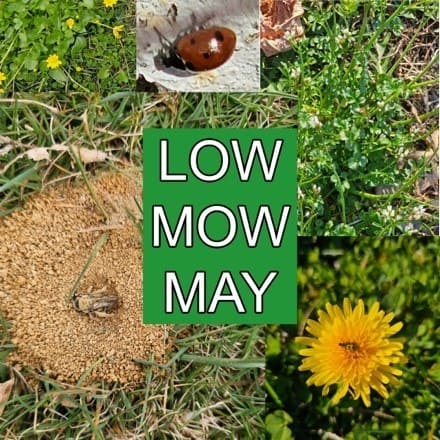In efforts to “prevent destruction of hibernating creatures,” residents in Bordentown Township are encouraged to participate in a voluntary Low Mow program that runs through May 8.
The Bordentown Township Committee adopted a resolution in March endorsing an initiative regarding a healthy growing height of grass in the early months of spring, which they said will bring “long-term benefits” and is “consistent with the township’s previous actions on environmental sensitivity.”
Mayor Eugene M. Fuzy, the township’s Environmental Commission with coordination from the township’s Code Enforcement office designed a pilot program to increase awareness and educate the public on ways to manage residential lawns that are not detrimental to the environment.
“The initiative is meant to insulate many overwintering organisms from destruction via early mowing, allow for the trapping of ground heat to prevent insects from freezing after emerging cold nights, allow for an environment that promotes longer grass roots that leads to less watering during the rest of the year, and allow flowering plants to feed early awakening pollinators for solitary bees,” according to the resolution.
The initiative should also increase flower variety and quantity for early pollinators, increase insect numbers, promote healthier lawns, and utilize less water, the resolution added.
The Environmental Commission is undertaking an educational program and created literature explaining the program and its benefits.
Residents have been able to “opt-in” via a registration process designed to identify those who want to participate while reserving the right of Code Enforcement to properly enforce existing township property maintenance standards.
Township properties not utilized for athletic activities or active recreation are participating in the program.
“The real aim of the program is [to] start the conversation about lawns and their impact as biological deserts and how we can fix that,” Fuzy said in a letter to residents. “These conversations hopefully inspire others to allow their yards to be havens for native wildlife and allow birds to have the food they need to raise their young and prevent further bird decline.
“Our Township has a long history of passing ordinances that support this goal including replacing trees and planting only native trees and ensuring perennial vegetation is native on our properties and new construction.
“We encourage all residents to raise their mower blades to ensure deeper roots of our lawns which reduces watering needs of our lawns.”
The township is encouraging less frequent cuts and using the mowers highest settings.
“It is also important to let your grass clippings stay in your yard to provide food for your lawn, reducing fertilization needs,” Fuzy continued. “It also reduces the garbage disposal fees for the township.”

